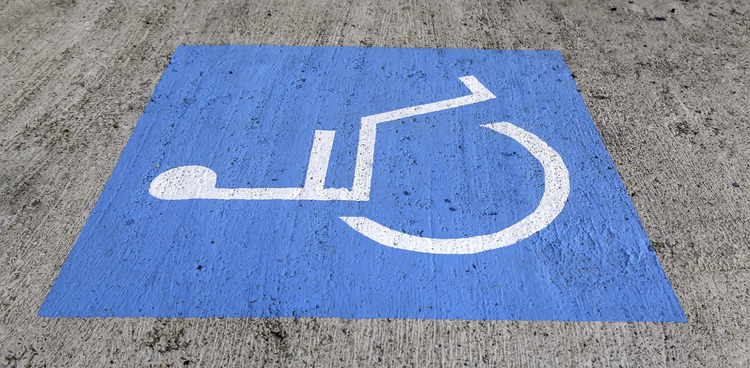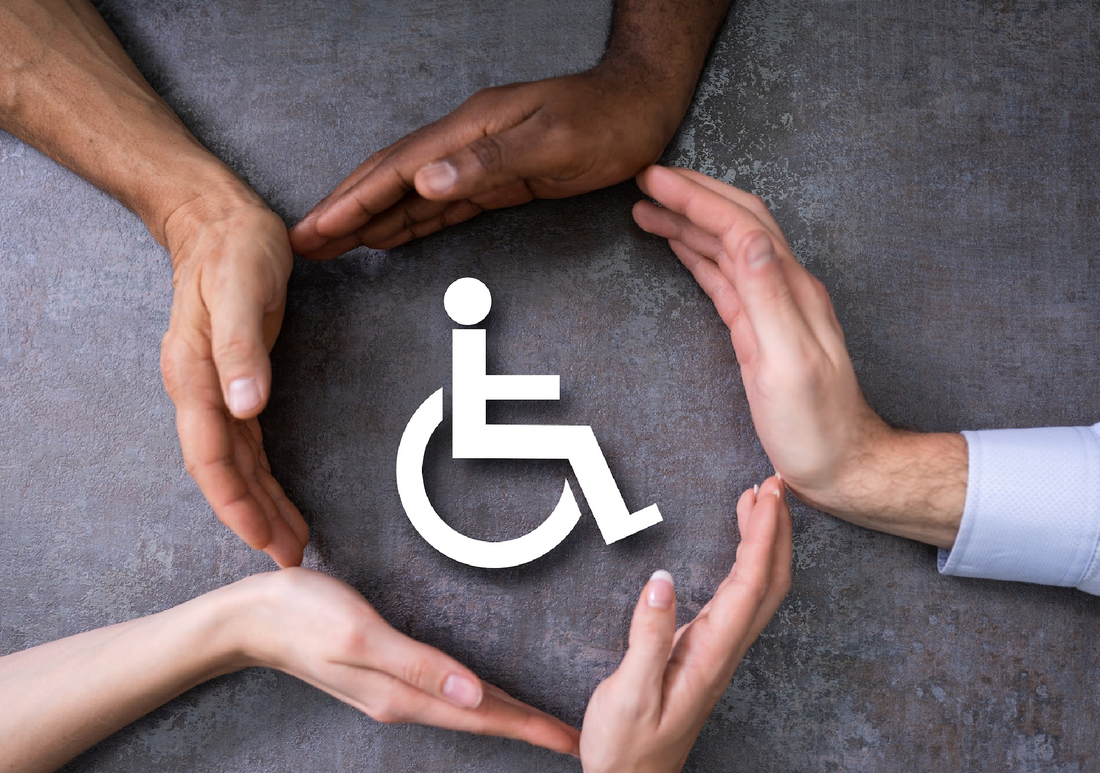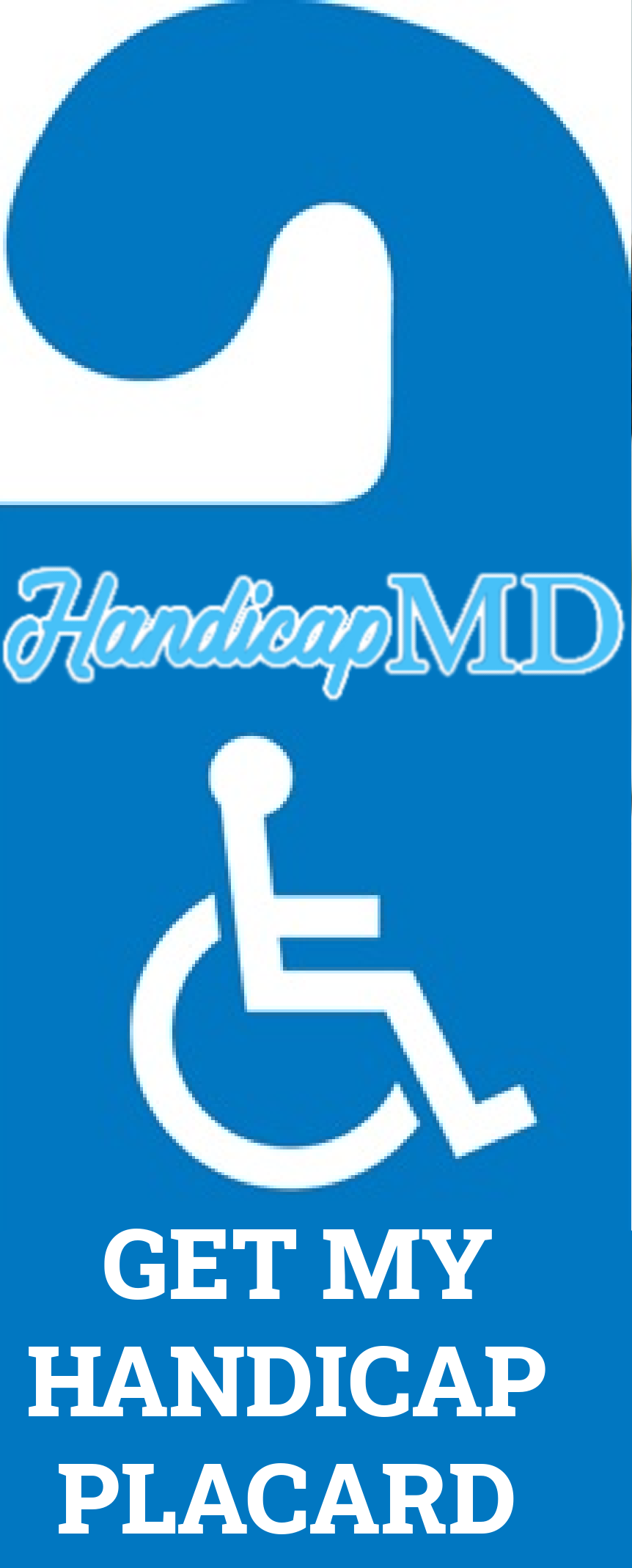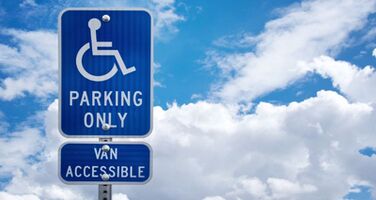
Check out some Qualifying Conditions for a Disabled Parking Permit in California
A handicap parking permit in California is a form of assistance to accommodate individuals with mobility limitations. Those who are granted handicap parking permits usually experience a degree of challenge to walk short distances due to a medical condition, which ranges from vision loss to a cardiovascular health issue.
If you are wondering if you have a medical condition that can qualify for a California handicap parking permit, you have come to the right place.
Read on for more information on the qualifying medical conditions for a California handicap parking permit.
Medical content reviewed by Dr Eric Jackson-Scott MD, Chief Medical Officer
What Are Some of the Qualifying Conditions For A Disabled Parking Permit in California?
1. Loss of mobility
Loss of mobility or apparent physical limitations that can significantly affect an individual's ability to walk short distances is a common reason for a handicap parking permit application. For many of these cases, applicants are unable to walk for a small duration of time without an assistive device like a cane, walker or wheelchair. The most important thing to consider in this situation is the actual distance that you're able to walk without taking a rest. Some States consider the inability to walk for more than 50 feet without rest as a ground for application, while in another state it can be as much as 200 feet.
Remember, however, the key point is if your physician can confirm that you do face difficulties walking long distances, you have a higher chance to have your application for a disabled parking permit approved.
For reference, many medical conditions can significantly affect your mobility. These include but are not limited to, chronic illnesses such as inflammatory bowel disease, asthma and lupus. Debilitating joint problems such as the different forms of arthritis, including osteoarthritis, rheumatoid or gouty arthritis can also be a reason for application. Neurological health conditions such as Parkinson's, Multiple Sclerosis or injuries to the spinal cord can all contribute to gait limitations.
Inability to Walk Without Assistance: If you require an assistive device like a cane, walker, crutch, or wheelchair to walk, you may qualify for a disabled parking permit. The key factor is the distance you can walk without needing rest or assistance. In California, if you are unable to walk more than 200 feet without stopping to rest, this qualifies as a significant mobility limitation.
Chronic Illnesses Affecting Mobility: Several chronic health conditions can lead to a loss of mobility. These include:
- Inflammatory Bowel Disease (IBD): Conditions like Crohn's disease or ulcerative colitis can cause severe fatigue and pain, limiting your ability to walk.
- Asthma: Severe asthma can lead to breathlessness even after minimal exertion, affecting mobility.
- Lupus: This autoimmune disease can cause joint pain and swelling, limiting movement.
Joint Problems: Conditions such as arthritis can severely limit your ability to walk:
- Osteoarthritis: This degenerative joint disease causes pain and stiffness in joints, making walking difficult.
- Rheumatoid Arthritis: An autoimmune condition that leads to painful inflammation in the joints.
- Gouty Arthritis: Gout can cause sudden, severe pain in the joints, especially in the feet.
Neurological Conditions: Disorders affecting the nervous system can impair mobility:
- Parkinson’s Disease: This progressive nervous system disorder affects movement and can cause significant mobility challenges.
- Multiple Sclerosis (MS): MS can cause muscle weakness, coordination problems, and fatigue, making walking difficult.
- Spinal Cord Injuries: Damage to the spinal cord can lead to partial or complete paralysis, impacting mobility.
For reassurance, you should talk to your doctor or a licensed physician at HandicapMD.com to access whether or not your disability would qualify for a disabled parking permit.
2. Limited Or No Use Of Arms
Having a limited or loss of functionality on one or both arms is also one of the indications for issuing a handicap parking permit. This is relevant for individuals who have an upper limb deformity or amputation as well as medical conditions that can affect the range of motions of the arms like spasms or joint disorders. Some States may even consider hand disabilities as a qualifying reason to get a permit. In addition, the DMV from certain states can entirely forgo the need for a full medical certification process if you have a missing upper limb.
This condition typically includes:
Upper Limb Deformity or Amputation: Individuals with a deformity or amputation of one or both arms may qualify for a disabled parking tag. The loss or severe impairment of upper limb functionality can significantly affect daily activities, including driving and mobility.
Medical Conditions Affecting Arm Function: Several medical conditions can restrict the range of motion or cause significant discomfort in the arms, making it difficult to perform tasks that require arm movement:
- Spasms: Severe muscle spasms in the arms can limit mobility and control, making it challenging to perform even basic tasks.
- Joint Disorders: Conditions such as arthritis, bursitis, or tendonitis can cause pain, stiffness, and reduced movement in the arm joints, affecting one's ability to drive or move around comfortably.
Hand Disabilities: In some cases, hand disabilities alone may qualify you for a disabled parking tag. This includes conditions that limit hand strength, dexterity, or cause severe pain, such as carpal tunnel syndrome or severe arthritis in the hands.
Simplified Certification Process for Certain Conditions: In California, as in some other states, the DMV may waive the full medical certification process if you have a missing upper limb. This means that the process of obtaining a disabled parking tag may be expedited if the physical limitation is clearly visible or documented, such as in the case of amputation or a severe deformity.
Consulting with a Physician
If you have limited or no use of your arms, it's important to consult with your healthcare provider to determine if your condition qualifies for a disabled parking tag. A physician can provide the necessary certification to support your application, ensuring that you meet the criteria set by the California DMV.
Limited or no use of arms, whether due to deformity, amputation, or medical conditions affecting arm function, is a valid qualifying condition for a disabled parking tag in California. If you experience significant limitations in arm mobility, consult with a healthcare provider to assess your eligibility and to help you obtain the necessary documentation for your permit application.
3. Use of a Prosthesis
The use of a prosthesis on either the upper limbs (hands or arms) or the lower limbs (feet and legs) is also an indication for a disabled parking tag. In some states, the usage of prostheses is sufficient to classify a condition as a disability even though they enable the wearer to walk or run long distances. This is to acknowledge that closer parking places would be more convenient for prosthesis wearers.
Here's how it works:
Prosthesis for Upper Limbs (Hands or Arms): Individuals who use prosthetic devices for their hands or arms may qualify for a disabled parking tag. While prostheses can significantly enhance functionality, they may still pose challenges in performing certain tasks, such as driving or carrying heavy items, which justifies the need for closer parking.
Prosthesis for Lower Limbs (Feet or Legs): Those who use prostheses for their legs or feet may also be eligible for a disabled parking permit. Although prosthetic limbs can allow users to walk or even run, they often require more energy to use than natural limbs, and long-distance walking may still be difficult or uncomfortable. Having access to closer parking spots can greatly reduce the physical strain for these individuals.
Recognition of Convenience Needs: In some states, simply using a prosthesis, regardless of the ability to walk or run long distances, is sufficient to classify the condition as a disability. This acknowledges the fact that even with the assistance of prosthetic devices, individuals may still face challenges that make closer parking more convenient and necessary for their daily activities.
4. Limited Vision
Understandably, vision impairment is recognized as a form of disability especially when it comes to maneuvering a vehicle. Some DMVs outline that a visual acquisition of 20/200 or less with correcting lenses is mandatory to apply. There is a misconception that a handicap placard would only benefit the vehicle driver, but this is not true. You could still utilize a handicap placard as a passenger as this allows you to park closer to your destination.
Vision impairment can significantly impact an individual's ability to navigate and safely maneuver a vehicle, making closer parking essential.
Vision Impairment Criteria: For many DMVs, including California's, a visual acuity of 20/200 or less with corrective lenses is a recognized threshold for applying for a disabled parking permit. This level of vision impairment is considered legally blind and can make it difficult or impossible to drive safely without special accommodations.
Benefits for Both Drivers and Passengers: A common misconception is that a disabled parking placard is only beneficial for the driver of a vehicle. However, the placard is equally useful for passengers who have limited vision. If you are a passenger with vision impairment, the disabled parking placard allows you and your driver to park closer to your destination, reducing the distance you need to walk in potentially unfamiliar or challenging environments.
Safety and Convenience: Limited vision can make navigating parking lots, crossing streets, and identifying obstacles more difficult. Having access to a disabled parking space close to the entrance of your destination enhances both safety and convenience, reducing the risks associated with poor visibility.
5. Cardiac Conditions
According to the American Heart Association, the severity of cardiac conditions can be classified into 4 categories, with Class I being on the milder end of the spectrum while Class IV being on the more severe end. Individuals in Class III or IV of this classification can experience significant symptoms that limit their mobility upon exertion. That being said, they can predispose themselves to severe fatigue, breathlessness or palpitation upon walking a specified distance. In this case, it would be relevant for them to consult a physician to obtain a recommendation for a disabled parking permit.
Limited vision, especially with a visual acuity of 20/200 or less, is a recognized qualifying condition for a disabled parking permit in California. Whether you are a driver or a passenger with vision impairment, a disabled parking placard can provide essential access to closer parking spaces, enhancing your safety and convenience. Consult with your physician to determine your eligibility and obtain the required certification for your application.
6. Lung Or Pulmonary Disorders
Medical respiratory conditions that fall under this category include asthma, emphysema, COPD, cystic fibrosis and many more. Individuals who suffer from the pulmonary disease are prone to becoming breathless when walking long distances. In addition, the process of transport would be made more challenging if they require the use of portable oxygen. Therefore, it is highly suggested that those who find this situation relatable to apply for a handicap parking permit or get a renewal.
Here’s how lung and pulmonary disorders qualify:
Common Respiratory Conditions: Several respiratory conditions are included in this category:
- Asthma: Severe asthma can cause episodes of breathlessness, wheezing, and chest tightness, especially during physical exertion.
- Emphysema: A form of chronic obstructive pulmonary disease (COPD), emphysema damages the air sacs in the lungs, making it difficult to breathe.
- Chronic Obstructive Pulmonary Disease (COPD): COPD is a group of lung diseases that block airflow and make breathing difficult, often resulting in breathlessness after minimal exertion.
- Cystic Fibrosis: This genetic disorder causes persistent lung infections and progressively limits the ability to breathe.
Breathlessness and Limited Mobility: Individuals with pulmonary diseases often experience significant breathlessness, even after walking short distances. This can severely limit their mobility and make everyday activities challenging. A disabled parking permit allows them to park closer to entrances, reducing the need to walk long distances and helping them conserve energy.
Use of Portable Oxygen: For individuals who require the use of portable oxygen, the process of transportation becomes even more challenging. Carrying or managing portable oxygen equipment while walking adds an extra burden, making closer parking spaces a necessity for their safety and convenience.
Renewal and Application: For those with lung or pulmonary disorders, it is advisable to apply for a disabled parking permit or ensure their current permit is renewed before it expires. This ensures they continue to have access to the accommodations they need.
How do you qualify for disabled parking in California?
In CA, to qualify for disabled parking, you must have a qualifying disability that limits your ability to walk or requires the use of a wheelchair, crutches, or other mobility aids. The disability must be one or more of the following:
Unable to walk 200 feet without stopping to rest.
Requires a wheelchair, walker, crutches, braces, or other mobility aids.
Has a lung disease, such as COPD, that limits breathing capacity.
Uses portable oxygen.
Has a cardiac condition classified as Class III or IV by the American Heart Association.
Has a disabling condition that limits mobility as certified by a licensed physician.
To obtain a disabled parking placard or license plate, you must have a licensed physician, surgeon, chiropractor, optometrist, podiatrist, or nurse practitioner complete a Disability Certification Form (REG 256) or provide a written letter on their letterhead. The form or letter must certify that you have a qualifying disability, and it must be submitted to the Department of Motor Vehicles (DMV) along with the appropriate application form.
It's important to note that only use the disabled parking placard or license plate if you are the authorized holder and are using it for the intended purpose. Misuse of disabled parking placards is a serious offense in CA and can result in fines, towing, and even arrest.
How do I get a disability placard in California?
To get a disability placard in CA, you will need to follow these steps:
Get a Disability Certification: You must have a disability certification from a licensed physician, surgeon, chiropractor, optometrist, podiatrist, or nurse practitioner, indicating that you have a qualifying disability. The certification must be on a DMV-issued Disability Certification Form (REG 256) or a medical professional's letterhead.
Complete the Application: You can download the Disability Placard or Plate Application (REG 195) from the DMV's website, or pick up a copy at a DMV office. You will need to provide your personal information, disability certification, and payment for any applicable fees.
Submit the Application: You can submit the completed application by mail or in person at a DMV office. If you submit the application by mail, you must include a copy of your disability certification.
Receive Your card: If your application is approved, you will receive a disability sticker in the mail. The sticker is valid for up to six years and can be used in any vehicle you are traveling in.
The California Department of Motor Vehicles (DMV) offers a variety of license plates and placards for individuals with disabilities. These options include:
Permanent Placards: To obtain a permanent placard, your disability must be verified by a licensed physician. This placard is valid for two years before it needs to be renewed.
Temporary Placards: For individuals with temporary disabilities, a temporary placard can be obtained with verification from a physician. This placard is valid for six months or the date specified by the physician.
Disabled Person License Plates: These license plates are only available for individuals with vehicles registered in their name.
Disabled Veteran License Plates: Reserved for those who meet specific requirements related to their service.
Travel Placards: Designed for individuals with disabilities who are traveling to or from California for a set period of time. However, it is worth noting that many out-of-state disabled parking placards are also widely accepted in California.
It's important to note that certain rules apply when using a disabled parking placard in California. These rules include:
Placard Display: Placards must be displayed clearly on the vehicle's rear-view mirror when parked in designated disabled parking or metered parking zones. When the vehicle is in motion, the placard must be removed.
No Parking in Certain Areas: Yellow or white curbs must be kept clear, so individuals with disabilities cannot park there. Parking next to these curbs is not allowed.
Reserved Spaces: Cross-hatch patterns beside disabled parking spaces are reserved for wheelchair and lift access, and individuals with disabilities cannot park there.
It should be highlighted that there are many other medical conditions, injuries, or disabilities that can make you qualify for a handicap parking permit. If you are in doubt, it would be wise to review it with a physician to ensure that you are getting the best possible assistance to facilitate the qualifications for your California handicap parking permit.
In summary, the California DMV provides various license plates and placards for individuals with disabilities. To use these placards, individuals must follow certain rules, including proper placard display and avoiding parking in certain areas. By adhering to these guidelines, individuals with disabilities can enjoy greater accessibility and convenience when traveling in California.
HandicapMD.com is a website dedicated to helping patients obtain disabled parking permits online. By providing an easy-to-use platform, individuals can apply for and receive a disabled parking permit without the need for an in-person visit to a physician or DMV office. The website also offers helpful resources and information about the process of obtaining a disabled parking permit, as well as a simple and secure application process.
At HandicapMD.com, patients can get the help they need to navigate the often complex process of obtaining a disabled parking tag. The website's user-friendly interface and streamlined application process make it easier than ever to get the permit you need to access the parking accommodations you require. Whether you have a temporary or permanent disability, the team at HandicapMD.com is here to help.
If you or someone you know is in need of a disabled parking sign, visit HandicapMD.com today to learn more about the process and get started on your application. With fast, secure, and reliable service, HandicapMD.com is the ultimate resource for anyone seeking a disabled parking permit online.
.png)






